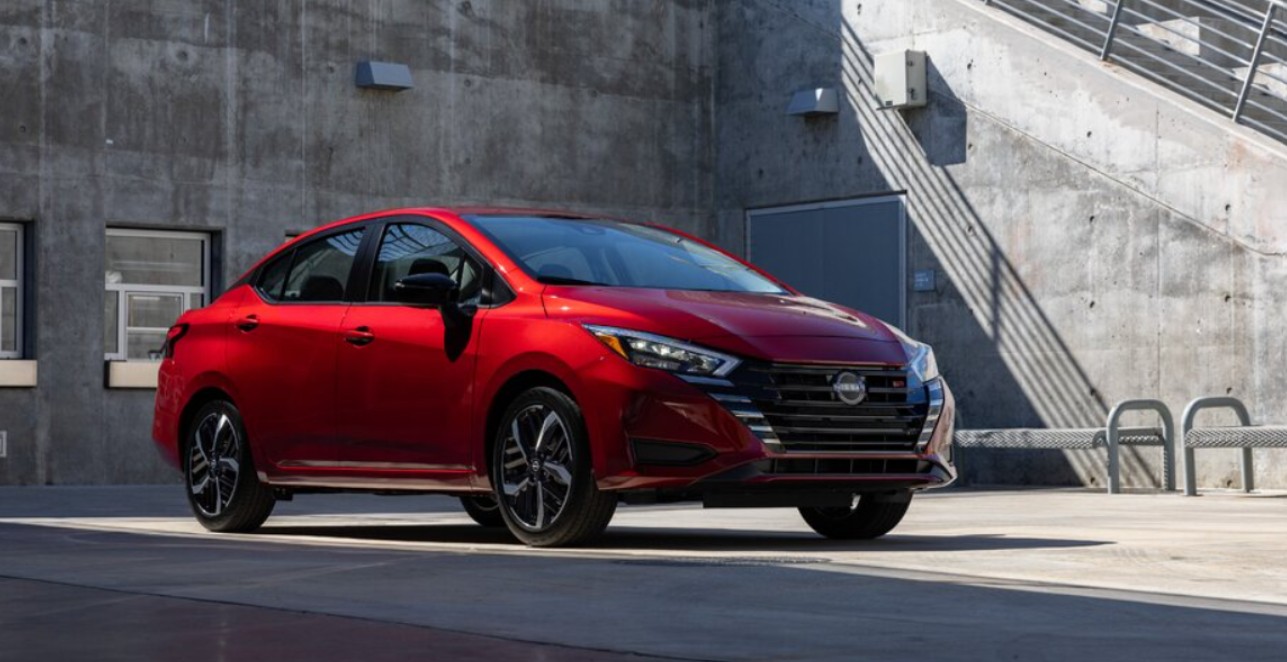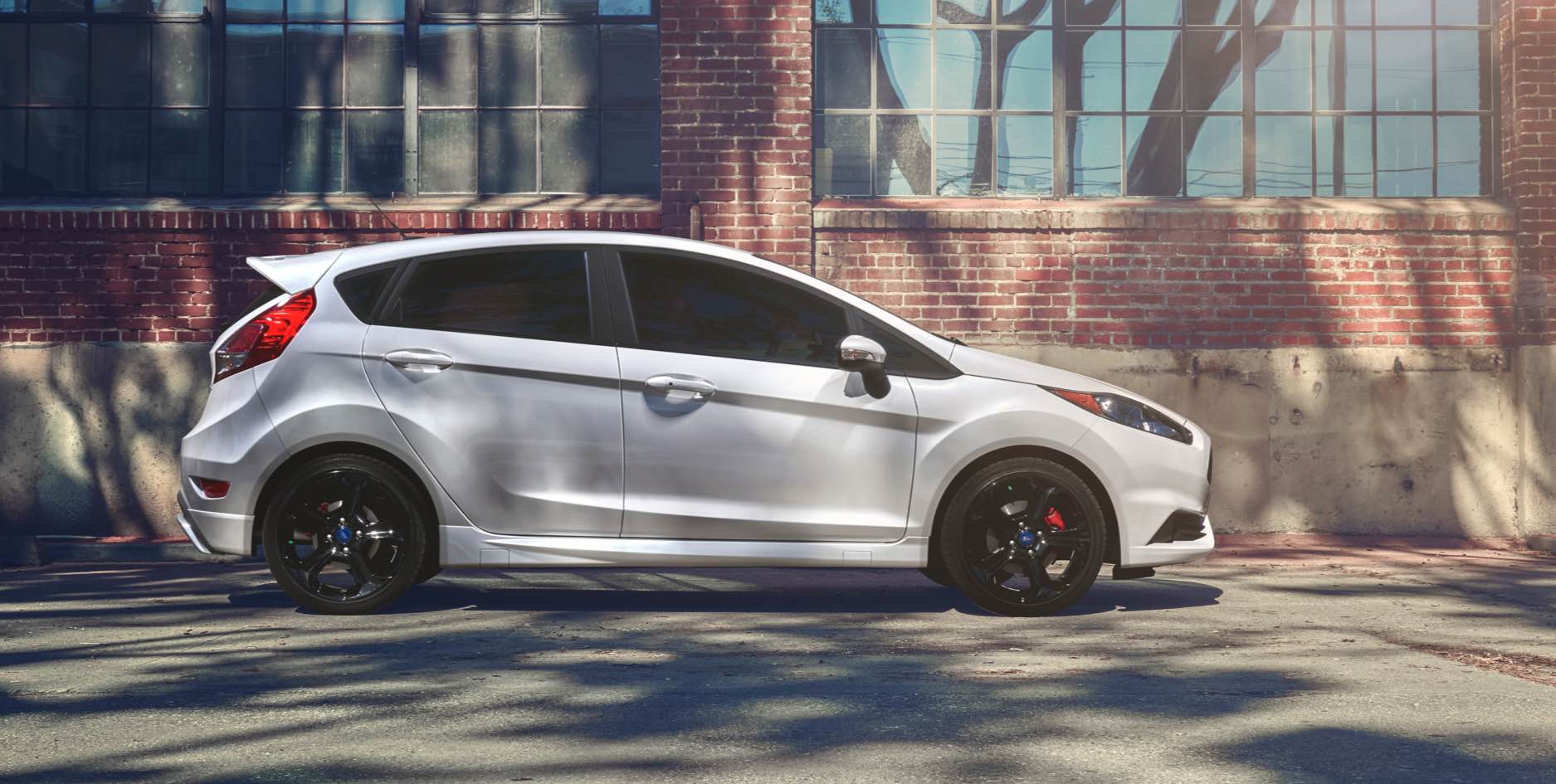When it comes to cars, sound is more than just background noise—it’s part of the experience. A vehicle’s engine note can stir the soul, inspire confidence, or, in less fortunate cases, make you question your life choices at every stoplight.
Whether you’re a seasoned enthusiast or a casual driver, the way an engine sounds plays a big role in how we perceive a car’s character.
Some engines purr with silky refinement, offering a sophisticated auditory experience that whispers of engineering excellence. Others, however, can sound like a swarm of angry bees trapped in a tin can—more akin to your neighbor’s beat-up lawnmower than a precision-built machine.
In this list, we’re diving into both ends of the spectrum. First, we’ll explore five engines that stand out for their polished, balanced, and often luxurious acoustic signatures—powerplants that remind you why you fell in love with driving in the first place.
These engines don’t just run well—they sound incredible, delivering notes that range from orchestral to thunderous, without ever becoming grating or crude. They’re the kind of motors that make even a mundane commute feel like an occasion.
Then we’ll shift gears and examine the flip side: engines that fail to deliver an auditory experience worthy of their purpose. These are the whiny, harsh, or oddly underwhelming units that leave your ears—and sometimes your pride—suffering.
Whether due to cost-cutting, lack of tuning, or simply poor design, these engines come off more like garden equipment than automotive craftsmanship. They may get you from A to B, but they won’t do so with any kind of sonic grace.
So buckle up as we take a tour of the automotive world’s best—and worst—sounding engines. Whether you’re chasing acoustic bliss or learning what to avoid, this list has something for every motorhead with an ear for engine music.
Also Read: Top 10 Cars With the Best Cooling Systems for Long-Lasting Engines
5 Engines That Sound Refined

Ferrari 812 Superfast – 6.5-Liter V12
Ferrari has long been known for its dedication to engineering precision, and the 812 Superfast’s 6.5-liter V12 engine is a prime example of this philosophy in action. The engine produces an unmistakably refined sound that sets it apart from most other performance vehicles.
The 812 Superfast’s V12 engine sings with a high-pitched, wailing crescendo as it revs, offering an auditory experience that matches its blistering performance. It’s the sort of engine note that sends shivers down your spine and leaves a lasting impression on anyone lucky enough to hear it in action.
What makes the 812 Superfast’s engine sound so refined is the way it balances power and smoothness. The V12 is both aggressive and sophisticated, never crossing the line into harsh or crude.
This perfect harmony between strength and elegance is one of the reasons why Ferrari’s V12 engines are revered by car enthusiasts worldwide. It’s the sort of sound that encourages you to rev the engine just to hear that perfect note one more time.
As the engine reaches its peak revs, the sound transforms into a glorious, spine-tingling scream, but it never becomes overpowering or intrusive.
This is what makes the 812 Superfast such a special car; it doesn’t just excel in performance, but it does so while providing one of the most refined and evocative engine sounds in high-performance automobiles.

Aston Martin DB11 – 5.2-Liter Twin-Turbo V12
Aston Martin is known for crafting cars that are as much about refinement as they are about performance. The DB11’s 5.2-liter twin-turbocharged V12 engine is an exemplar of this philosophy. The engine produces a sound that is both powerful and refined, with a deep, resonant growl that emanates from the twin exhausts.
There is a smoothness to the engine note that matches the car’s luxurious, leather-clad interior, making the DB11 the perfect blend of performance and refinement.
What makes the DB11’s engine sound so exquisite is how it maintains its composure even under full acceleration. There’s no sudden, harsh note or unruly loudness.
Instead, the V12 glides through its rev range, delivering a refined and satisfying sound that pleases the ears without overwhelming them.
This is the kind of engine note that you would expect from a car that carries the Aston Martin badge—classy, sophisticated, and undeniably exhilarating when pushed to its limits.
Whether you’re cruising on the highway or pushing the car hard around a bend, the DB11’s engine sound complements the driving experience perfectly.
The deep rumble at idle evolves into a vocal roar at higher revs, offering a sound that never fails to impress. It’s the epitome of a refined yet powerful engine note, making the DB11 a standout in its class.

Porsche 911 Turbo – 3.8-Liter Twin-Turbocharged Flat-Six
Porsche’s iconic flat-six engine is famous for its distinctive, almost musical sound. In the 911 Turbo, the 3.8-liter twin-turbocharged flat-six engine produces a sound that is as refined as it is unique.
Unlike traditional inline or V-shaped engines, the flat-six produces a distinctive engine note that’s characterized by a harmonious growl at lower revs and an exhilarating, almost shrill note as the revs climb higher. This engine strikes a balance between refinement and excitement, with an instantly recognizable sound.
What sets the 911 Turbo’s engine apart from other performance cars is how it manages to sound both powerful and composed. Even under heavy acceleration, the flat-six maintains a sense of smoothness that makes the car feel controlled and balanced.
The sound is never overly loud or aggressive but instead adds to the car’s precision and engineering excellence. The 911 Turbo’s engine note is the perfect accompaniment to its exceptional performance, helping to create an engaging driving experience that’s as much about auditory pleasure as it is about speed.
For Porsche enthusiasts, the 911’s flat-six engine is synonymous with driving enjoyment. Its refined yet thrilling sound is one of the key factors that make the 911 Turbo such a sought-after car, and it’s a sound that resonates with anyone lucky enough to hear it.

Maserati Quattroporte GTS – 3.8-Liter Twin-Turbo V8
Maserati has always been known for producing cars that deliver a unique blend of Italian flair and performance, and the Quattroporte GTS is no exception. Its 3.8-liter twin-turbo V8 engine offers a refined, muscular sound that perfectly complements the car’s elegant design.
At low speeds, the V8 emits a smooth and deep tone, but as the revs rise, it transitions into a thrilling roar that can’t help but draw attention.
What makes the Quattroporte GTS’ engine note so appealing is its balance between refinement and aggression. The engine sounds smooth and composed during casual driving, but once you push it, it opens up into a deep, throaty roar that showcases the car’s performance capabilities.
It’s a sound that isn’t overwhelming but is still unmistakable, offering a sophisticated engine note that perfectly matches the luxurious interior of the car.
The Quattroporte GTS’ engine is an embodiment of Maserati’s commitment to delivering a unique driving experience, and the sound it produces plays an essential role in that. It’s a car that sounds as luxurious as it feels, with an engine note that enhances the driving experience.

Bentley Continental GT W12 – 6.0-Liter Twin-Turbo W12
Bentley’s Continental GT W12 is a luxury grand tourer that combines elegant design with impressive performance. The 6.0-liter twin-turbocharged W12 engine produces a smooth, deep sound that embodies Bentley’s commitment to refinement.
The engine note at idle is composed and relaxed, but as you apply more throttle, the W12 emits a rich, refined growl that reflects the car’s powerful performance potential.
The sound of the Continental GT W12 is one of the car’s defining features. It’s the kind of engine that makes you feel as if you’re driving a truly special vehicle.
Even at high speeds, the engine maintains a sense of control and refinement, offering a sound that is luxurious but still has enough power behind it to make you appreciate its capabilities. It’s the perfect mix of smoothness and strength, offering an auditory experience that matches the Continental GT’s impressive performance.
This refined engine sound is what makes the Bentley Continental GT W12 so desirable to luxury car buyers. The engine’s sound is a reflection of the car’s character—powerful, elegant, and perfectly engineered for those who demand both performance and refinement.
5 Engines That Roar Like Lawnmowers

Chevrolet Sonic – 1.8-Liter Inline-4
The Chevrolet Sonic is a budget-friendly compact car, and its 1.8-liter inline-4 engine reflects its affordable nature. When you start up the engine, you quickly notice that it lacks the refinement expected from modern vehicles.
At low speeds, the engine is relatively quiet, but as soon as you push the throttle, it makes an unrefined, high-pitched noise that is more reminiscent of a lawnmower than a well-tuned car engine.
This sound continues throughout the rev range, often turning into a coarse, mechanical whine that is difficult to ignore, especially during highway speeds or rapid acceleration.
What makes Sonic’s engine sound especially unappealing is its lack of smoothness. Unlike engines that offer a controlled and balanced roar, the Sonic’s engine lacks harmony and instead emits a sound that feels strained and loud.
This roughness can be particularly noticeable in city driving, where the car is frequently accelerating and decelerating. Despite the car’s practicality and fuel efficiency, the engine noise becomes a constant reminder that this is a budget car, and it detracts from the driving experience.
Although the Sonic excels in terms of affordability, practicality, and technology features, its engine note is a major drawback for anyone who values a more refined or enjoyable auditory experience.
The sound it produces can be jarring, especially for those accustomed to quieter, smoother engines. For a car that’s meant to be a daily driver, the noise from the 1.8-liter inline-4 can quickly wear thin, and it is often seen as one of the most off-putting aspects of the vehicle.

Hyundai Accent – 1.6-Liter Inline-4
The Hyundai Accent, much like the Chevrolet Sonic, is a compact car designed to offer basic functionality at an affordable price point. However, the Accent’s 1.6-liter inline-4 engine doesn’t do much to enhance the driving experience when it comes to sound.
At low speeds, the engine is relatively quiet, but the moment you accelerate, it produces a loud, coarse noise that seems to echo throughout the cabin. It doesn’t have the smooth, refined growl that many other cars offer, instead making a sharp, almost irritating sound that’s difficult to ignore.
The engine noise in the Accent becomes even more apparent when you push the car on highways or when accelerating at full throttle. The 1.6-liter engine produces a high-pitched whine that is often compared to the sound of a small lawnmower.
This lack of refinement makes it hard for the Accent to stand out in subcompact cars, where driving pleasure is sometimes sacrificed for the sake of affordability.
The noise it generates can be particularly tiring over long distances, making the Accent less desirable for those who prioritize a quieter cabin or a more composed driving experience.
While the Hyundai Accent does provide great fuel efficiency, low ownership costs, and a spacious interior, the engine’s lack of sophistication in sound can be a dealbreaker for many drivers.
Whether you’re commuting on city streets or taking the car on a long road trip, the intrusive sound of the 1.6-liter inline-4 can become exhausting undermining the driving experience. It’s an example of a car that is practical, but the engine sound leaves much to be desired.

Nissan Versa – 1.6-Liter Inline-4
The Nissan Versa’s 1.6-liter inline-4 engine may be efficient and economical, but it doesn’t win any awards for its sound. When you start the car, the engine hums quietly at first, but as you begin to accelerate, it quickly turns into a loud, mechanical noise that can be heard both inside and outside the car.
This noisy sound is especially pronounced when the car is under load, such as during rapid acceleration or while climbing hills. The engine doesn’t offer the smooth, refined sound of other cars in its class, but instead, it emits a harsh, buzzing tone that resembles the noise of a lawnmower.
One of the most noticeable issues with the Nissan Versa’s engine sound is how grating it becomes over time. Whether you’re in stop-and-go traffic or cruising on the highway, the engine constantly makes a presence, which is distracting for drivers and passengers alike.
The lack of insulation between the engine and cabin amplifies the noise, making it even more noticeable.
This constant, intrusive noise detracts from the comfort of the driving experience and makes it difficult to enjoy the ride, even though the car is otherwise economical and easy to maneuver.
Despite the Versa’s reputation for being an affordable, practical choice in the subcompact car market, the engine’s lack of refinement is a significant drawback.
While it’s hard to expect luxury-level quietness in a budget vehicle, the Versa’s engine struggles to provide any semblance of pleasant sound.
For anyone who prioritizes a smoother driving experience with less intrusive engine noise, the Versa’s 1.6-liter inline-4 engine might leave them yearning for something quieter and more refined.

Ford Fiesta – 1.6-Liter Inline-4
The Ford Fiesta is an agile and fun-to-drive subcompact car, but its 1.6-liter inline-4 engine produces an engine note that is far from refined. When the Fiesta accelerates, the engine lets out a noisy, harsh sound that can be rather unpleasant, especially during hard acceleration.
The high-pitched tone it generates often resembles the whine of a small, struggling lawnmower, rather than the smooth, composed sound of a well-tuned engine. This noisy engine can make the Fiesta feel less polished than its competitors in the subcompact class.
In addition to its noisy acceleration, the Fiesta’s engine produces an unbalanced sound that is especially noticeable when driving at higher speeds or on the highway. The constant buzz of the engine becomes more pronounced, and it detracts from the otherwise enjoyable driving experience.
While the car’s handling is nimble and responsive, the engine’s lack of smoothness often becomes a focal point, especially during longer drives. For those who are used to quieter engines, the Fiesta’s noise can become grating and distracting.
For a car that’s marketed as a fun, affordable option for younger drivers, the Ford Fiesta’s engine noise can be a letdown. While the car delivers excellent handling and great fuel economy, the engine’s lack of refinement in sound can leave a lot to be desired.
The rough, intrusive engine note is a significant factor that diminishes the driving experience, particularly for those who are looking for a smoother, quieter ride.

Kia Rio – 1.6-Liter Inline-4
The Kia Rio, much like the Hyundai Accent, is an affordable, practical car that prioritizes value over luxury. However, its 1.6-liter inline-4 engine is one area where the Rio falls short, particularly when it comes to sound.
The engine produces a loud, harsh noise during acceleration, which can be quite annoying, especially when the car is pushed to higher revs.
The sound is mechanical and unrefined, often drawing comparisons to the noise of a lawnmower, with a high-pitched whine that doesn’t inspire excitement.
As with many other subcompact cars, the Kia Rio’s engine noise becomes more pronounced at highway speeds. The lack of sound insulation and refinement makes the engine’s harsh roar a constant presence in the cabin.
This noise can become tiring on long drives, making it difficult to enjoy the ride. While the Rio offers good value in terms of affordability and practicality, the engine sound leaves much to be desired, and it can detract from the driving experience.
While the Kia Rio offers excellent fuel economy and practicality for those on a budget, the engine noise is a significant downside.
The lack of refinement in the 1.6-liter inline-4 engine’s sound makes the car less enjoyable for drivers who value a quieter, more refined engine note. For a car that’s otherwise great for daily commuting, the engine’s lack of smoothness is a downside.
Engine sound plays a significant role in the driving experience. For some, it’s the smooth purr of a luxury sedan’s V8, the high-pitched wail of a sports car’s flat-six, or the refined growl of a luxury grand tourer’s V12 that creates a truly immersive experience.
On the other hand, there are vehicles whose engines produce less-than-desirable sounds, often resembling the mechanical buzz of a lawnmower rather than the refined symphony of a well-engineered engine.
Whether it’s the high-end note of the Ferrari 812 Superfast or the harsh whine of a Nissan Versa’s four-cylinder, engine sound is a key factor in how a car is perceived. Refinement, smoothness, and power all contribute to the auditory experience, and manufacturers are aware of how important it is to get the sound just right.
Also Read: 5 Trucks That Survive Generations and 5 That Die Young
When shopping for a car, it’s important to consider what kind of engine sound resonates with you. Do you crave a refined, quiet ride that lets you enjoy the surroundings, or are you looking for an engine that roars to life and thrills you with its unmistakable growl?
The choice comes down to personal preference, but one thing is certain: the sound of the engine is an integral part of the driving experience.

